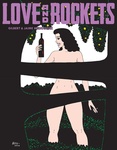
This work of graphic history is "based on the New York Times bestseller". It has been adapted by Chuck Dixon and illustrated by Paul Rivoche. Unless we've missed something, The Forgotten Man marks the single most significant comics work in the career of Mr. X co-creator, Paul Rivoche. This Canadian artist has here turned in a great piece of comics work that makes for an informative and engaging read in providing some interesting aspects of the Great Depression as well as the years leading up to it. However, it appears as though this work was intended as a polemic in support of a "new history" of this era that is supposed to overturn readers received notions related to this period in American – and world – history. In this regard, The Forgotten Man makes for a fascinating look into the psychology of those embracing this revisionist view of history. It appears as though the creators of this work take it as self-evident that readers of The Forgotten Man will come away from reading this with their eyes opened to the value and importance of this "new history" and will realize... something; it's hard to say what they were thinking. The actual take away from this book is fairly different. It is clear that the creators are partisans who identify with the "forgotten man" and have their differences with the policies that steered the USA through the depression. They have put together an immense cast of characters and struggle to do their best to show how they are related, but while the characters themselves are well delineated, the construction of their relationships with each other and the overall flow of history are thoroughly muddled and superficial, at best, and reveal that the authors of this work possess a remarkably poor grasp of historical forces and processes, which together with a moral naiveté combine to create a disturbingly solipsistic world view that heartily embraces self-pity; unless, of course, this graphic edition was actually intended as a work of irony along the lines of Robert Altman's Nashville, in which case we say, bravo, well done! Worthy of special note is Wendell Willkie masquerading as Dick Tracy (on page 210). Given the graphic similarities of Chester Gould's star creation to caricatures of Ronald Reagan, this homage seemed especially apt. Taken as a whole, the big plus is that there is enough ambiguity on hand here to make it possible for any comics reader to enjoy the classic old school comics story telling on hand here in this history of the era which, not coincidentally, gave birth to the comic book.

It's here, the much anticipated and long awaited new novel by the author of the Pulitzer Prize-winning The Amazing Adventures of Kavalier and Clay. It was originally scheduled to ship this time last year, but Chabon and his editor decided at the last minute to pull the plug and do a full rewrite. As with Chabon's last novel, The Yiddish Policemen's Union is brimming with invention. Conflating at least two genres -- the alternate history and the hard-boiled detective story -- his new work tells the story of Detective Landsman, Homicide, who works for the Federal District of Sitka, Alaska, the "temporary" safe haven created for Jewish refugees after the 1948 collapse of Israel. The story is set on the eve of the district's reversion to Alaskan control, an event that is poised to plunge its populace -- and, ultimately, its readers -- into unknown territory. Chabon is at his strongest here, superbly crafting layer upon layer -- crime, detection, international politics, chess, sex and gender roles, religious intstitutions, psychological traumas resulting from family dramas, and more, each sliced so thin as to allow the layers below to remain visible with the design of each lining up perfectly with that of the layer below to create a brilliant pattern that ultimately reveals that solving the crime not only doesn't fix the problem, it's not meant to. History is a process without an end.

This hefty hardcover volume is a 734 page abridgement of Vollman's massive seven-volume original that was published in 2003 by McSweeney's. Vollman's introduction states, "What you have here is (1) a selection of "when is violent defense of X justified" chapters, which are (I hope) interesting in their own right; followed by (2) the complete Moral Calculus, which contains my answers to every "when is" question considered in the long volume; rounded off with (3) several case studies from war zones, et cetera, along with all regional introductions to the case studies." Our favorite quote from the introduction: "The long version of Rising Up Rising Down took me twenty-three years... the abridgement took me half an hour." We're bringing this to your attention with the thought that now might be a fruitful time to reflect on this book's theme, and due to the spectacularly low price at which we currently able to offer it.










